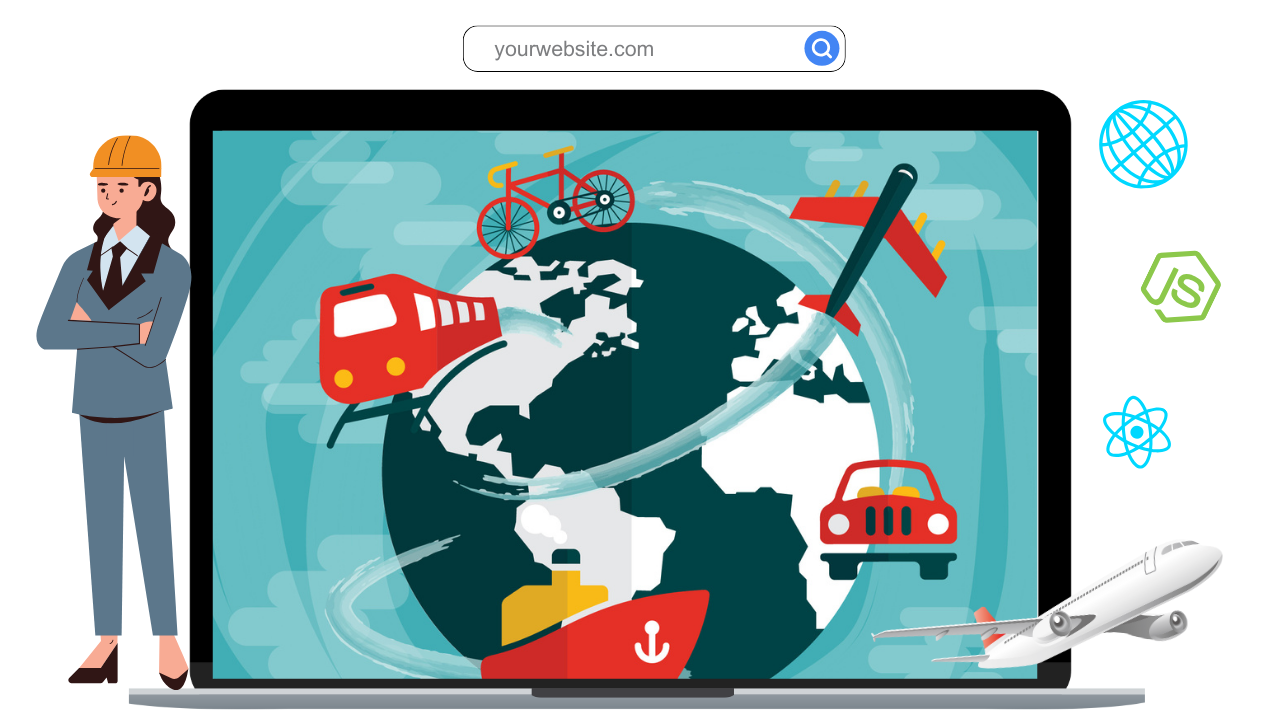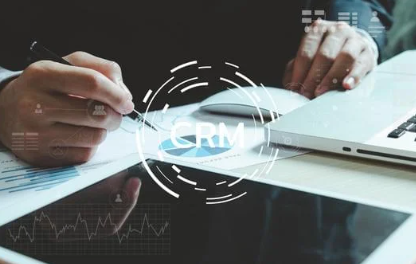
Blog
Transportation Software Development: Navigating the Future of Mobility with CodriveIT

The transportation industry is the backbone of global commerce and daily life, constantly evolving to meet demands for faster, safer, more efficient, and sustainable movement of goods and people. From complex logistics chains to urban mobility, cutting-edge software is the driving force behind this transformation. At CodriveIT, based in Coimbatore, we specialize in Transportation Software Development, building custom, intelligent, and scalable solutions that empower logistics companies, fleet operators, public transport authorities, and mobility service providers to optimize operations, enhance customer experience, and navigate the complexities of modern transportation.
Why Custom Transportation Software is Your Competitive Edge:
While off-the-shelf transportation solutions offer basic functionalities, they often fail to address the specific nuances, regulatory requirements, or unique operational challenges of individual transportation businesses. Custom software development with CodriveIT provides distinct strategic advantages:
- Tailored to Your Unique Operations: Generic software forces you to adapt your processes. Custom solutions are meticulously crafted to align with and optimize your existing workflows, vehicles, and business model, ensuring maximum efficiency and seamless integration.
- Enhanced Operational Efficiency & Cost Reduction: Automate manual tasks, optimize routes, manage fleet maintenance, and track fuel consumption. This leads to significant operational cost savings, reduced human error, and improved resource utilization.
- Real-time Visibility & Control: Gain complete, end-to-end visibility of your entire transportation network – from individual vehicles and shipments to driver performance and traffic conditions. Real-time data empowers proactive decision-making and rapid response to disruptions.
- Superior Customer Experience: Provide accurate ETAs, real-time tracking updates, proactive delay notifications, and personalized communication. This transparency and reliability build trust and significantly enhance customer satisfaction.
- Robust Security & Compliance: Transportation involves sensitive data and strict regulations. Custom solutions allow for the implementation of robust security measures, data encryption, and audit trails necessary to meet industry-specific compliance requirements (e.g., driver hours of service, hazardous material tracking).
- Seamless Integration: Integrate effortlessly with your existing ERP, WMS (Warehouse Management System), logistics software, accounting systems, and external APIs (e.g., weather data, traffic APIs), creating a unified and highly efficient digital ecosystem.
- Scalability & Flexibility: Your custom software is designed to scale with your business growth, accommodating increasing fleet sizes, new service offerings, expanding routes, and evolving market demands without costly overhauls.
- Data-Driven Decision Making: Transform raw operational data into actionable insights through advanced analytics and reporting. Identify bottlenecks, forecast demand, optimize pricing, and make informed strategic decisions to improve profitability.
- Environmental Sustainability: Optimize routes and driving behavior to reduce fuel consumption and carbon emissions, contributing to greener operations and meeting growing environmental regulations.
CodriveIT's Expertise in Transportation Software Development:
At CodriveIT, our team of experienced developers, data scientists, and UI/UX designers understands the intricate demands of the transportation sector. We leverage cutting-edge technologies to build a wide range of solutions, addressing diverse needs across various transportation verticals:
1. Transportation Management Systems (TMS): * Route Optimization: Dynamic planning of the most efficient routes considering traffic, weather, vehicle capacity, delivery windows, and driver availability. Can lead to an 8-20% reduction in transportation costs. * Fleet Management: Real-time GPS tracking, vehicle diagnostics, fuel consumption monitoring, driver performance management, and automated maintenance scheduling. Telematics can decrease fuel consumption by up to 15% and maintenance costs by 14%. * Dispatch & Scheduling: Automated allocation of loads, drivers, and vehicles, with real-time updates and efficient scheduling. * Freight Auditing & Payment: Automating freight bill verification, cost allocation, and payment processes, reducing errors and administrative overhead. * Carrier Management: Streamlining carrier selection, contract management, and performance evaluation. * Load Planning: Strategically arranging goods within vehicles to maximize space utilization and optimize weight distribution.
2. Last-Mile Delivery Solutions: * Optimizing the most challenging and costly part of the delivery chain, often accounting for 50% of total shipping costs. * Real-time tracking for customers, proof of delivery features (ePOD), and dynamic rerouting for traffic or delivery exceptions. * Integration with crowdsourcing platforms for flexible delivery options.
3. Public Transportation Management Systems: * Intelligent Transit Systems (ITS): Optimizing routes, schedules, and vehicle deployment based on real-time passenger demand and traffic conditions. * Ticketing & Payment Systems: Mobile ticketing, contactless payments, and integrated fare management. * Passenger Information Systems: Real-time updates on vehicle locations, arrival times, and service disruptions. * Mobility-as-a-Service (MaaS): Integrating various transportation modes (public transit, ride-sharing, bike-sharing) into a single, accessible platform for seamless journey planning and payment.
4. Logistics & Supply Chain Integration: * Building software to connect and streamline operations across the entire supply chain, including warehouse management (WMS), inventory management, and order management systems (OMS). * Enhancing supply chain visibility and responsiveness to market demands.
5. Vehicle Telematics & IoT Integration: * Connecting vehicles with sensors and IoT devices for real-time data collection (vehicle location, speed, engine performance, cargo conditions like temperature/humidity). * Predictive Maintenance: Analyzing telematics data with AI to predict vehicle failures, enabling proactive maintenance and reducing unplanned downtime. * Remote diagnostics and performance monitoring.
6. AI & Machine Learning for Transportation: * Predictive Analytics: Forecasting traffic congestion, demand fluctuations, and potential delays. Can reduce delivery delays by 30% and improve route planning by 25%. * Route Optimization: AI algorithms dynamically adjust routes based on real-time conditions. * Driver Behavior Analysis: Monitoring and providing feedback on driving habits to improve safety and fuel efficiency. * Automated Fraud Detection: Identifying suspicious activities in payment or cargo handling. * Chatbots & Virtual Assistants: For customer service, booking assistance, and providing real-time updates.
7. Mobile Applications for Transportation: * Driver apps for route navigation, task management, proof of delivery, and communication. * Customer apps for real-time tracking, booking, and communication with service providers. * Field service apps for maintenance crews.
CodriveIT's Development Process for Transportation Software:
Our approach is collaborative, transparent, and focused on delivering tangible business value:
- In-depth Discovery & Requirements Analysis: We start by thoroughly understanding your current transportation operations, specific challenges, existing infrastructure, and long-term business goals.
- Strategic Architecture & Design: Our architects design robust, scalable, and secure cloud-native architectures that support high transaction volumes, real-time data processing, and future growth.
- Intuitive UI/UX Design: We prioritize user-friendly interfaces for dispatchers, drivers, customers, and administrators, ensuring ease of use and rapid adoption.
- Agile Development & Iteration: We employ agile methodologies, developing your software in iterative sprints, allowing for continuous feedback, flexibility, and rapid delivery of functional modules.
- Integration Expertise: Our team excels at integrating new solutions with your legacy systems, third-party logistics partners, mapping services, and government compliance platforms.
- Rigorous Quality Assurance: Comprehensive testing (functional, performance under heavy load, security, mobile compatibility) is conducted throughout the development cycle to ensure reliability and bug-free performance.
- Deployment & Training: We manage the secure deployment of your new system and provide thorough training to your staff for smooth adoption.
- Ongoing Maintenance & Support: We offer continuous maintenance, performance optimization, security updates, and feature enhancements to ensure your transportation software remains efficient and future-proof.





